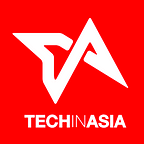インドで最も大きく、多額の資金調達に成功したランドリースタートアップが閉店。その理由は?
India’s largest and best funded laundry startup shuts shop. Here’s why
This was a startup we’d applauded when it made it into the first batch of Google Launchpad accelerator, all ready to scale up. On-demand laundry services startup Doormint, which washed and ironed around 1.2 million clothes for people in Mumbai, Bangalore, and Gurgaon over the last two years, today shut shop.
GoogleのLaunchpad acceleratorプログラムの第一期に選出された際に称賛を浴び、これからのスケールアップにも期待がかかっていたスタートアップ、Doormint。オンデマンドランドリーサービスを展開し、ムンバイ、バンガロール、グルガオンにて過去二年間で120万着もの服を洗濯・アイロンがけするビジネスを行った。しかしついに今日、Doormintは閉店することとなった。
“A truly scalable and profitable business model in laundry as an online-enabled business for mass consumption eluded us till the end. The costs of processing clothes, pick up and drop logistics, and packaging were difficult to recover through prices,” Doormint co-founders Abhinav Agarwal and Naman Lahoty said in a goodbye statement sent to those who’ve used the startup’s services.
「大衆消費型のオンラインビジネスに成りうるランドリーを利用した、スケール可能で利益が望めるようなビジネスモデルには最後の最後まで手が届きませんでした。服を受け取ってからのロジスティクス、そしてパッケージングというようなプロセスに関わるコストの問題はなかなか解消されませんでした。」Doormintの共同設立者であるAbhinav Agarwal氏とNaman Lahoty氏は最後の挨拶にてサービス受給者へこのように発表した。
The startup which began as a home services provider in Mumbai had raised around US$90,000 from Powai Lake Ventures and angel investor Utsav Somani in April last year. A series A round of US$3 million from Helion Venture Partners and Kalaari Capital followed a few months later in July. That’s when Doormint decided to go razor-focused on the laundry vertical instead of being a horizontal player.
ムンバイでホームサービスの提供者として始まったこのスタートアップは、昨年の4月にPowai Lake Venturesとエンジェル投資家であるUtsav Somaniから90,000USドルの投資を受けた。その後6月にはシリーズAラウンドで300万USドルを Helion Venture PartnersとKalaari Capitalから調達。この時Doormintは広く様々な分野に焦点を当てるのではなく、ランドリーに一極集中することを決意した。
The startup had then stated it was growing 45 percent month-on-month and handling 500 orders in a day. But despite several tweaks with the business model, Doormint found scaling up tough. As a result, the cash burn became unmanageable.
Doormintは対前月比45パーセントの成長率で1日に500件の注文を受けていることを発表した。しかし、ビジネスモデルの微調整も行っているのにも関わらず、Doormintはスケールアップすることが難しいことに気づいた。結果として、キャッシュバーンは始末に負えない状態に陥ってしまった。
“In the last few months, we even set up our own processing unit to cover the last leg in the value chain. It indeed helped in quality control but costs remained almost the same. Maybe the technology of the future will allow us to process clothes at much lower costs with higher degrees of automation,” the Doormint co-founders said.
「過去2か月で、私たちはバリューチェーンの最終点をカバーする独自のプロセスユニットを立ち上げました。確かにその取り組みは質をコントロールするには役立ったのですが、コストの問題はそれでも解決しませんでした。未来のテクノロジーがあれば私たちのプロセスを低コストに抑えられるかもしれませんね。しかもハイテクな自動操作機能で。」とDoormintの共同設立者たちは語った。
Laundry startups vs the dhobi tradition
ランドリースタートアップ vs dhobiの伝統
Scene from a traditional public laundry space in India. Photo credit: Dennis Jarvis.
インドの伝統的な公共ランドリースペース。 写真提供:Dennis Jarvis
India with its 1.2 billion plus population is a huge market for the laundry business. Various reports peg it at many billions of dollars, most of which is disorganized. That coupled with the startup boom in India lured droves of entrepreneurs to launch over 200 laundry startups in the last two years. But the vertical came with its own challenges in India.
ランドリービジネスにとってインドは12億以上の人口を抱える巨大マーケットである。様々な調査でそのマーケットは何十億ドルにもなると判定されているが、未だはっきりはしていない。それとインドにおけるスタートアップブームに伴い、過去2年間でランドリースタートアップを立ち上げた企業は200社以上にのぼる。しかしインドにおけるランドリービジネス一極集中は自身に挑戦をけしかけることとなった。
Most of the urban middle class employ househelp. At around US$75 a month, you could have someone come home everyday to clean, mop, and do other chores, including laundry. For example, the lady who comes to wash clothes at my house daily spends about 30 minutes in each of the three houses in my building. She goes to several buildings in a day and earns about US$400 in a month.
都市部に住む中間層のほとんどはメイドを雇っている。1ヶ月で75USドル、毎日の掃除からモップ掛け、そのほかの家事まですべて行ってくれる。もちろん洗濯もだ。例えば、洗濯を担当のメイドは一つのアパートにつき3つの家庭の洗濯を各30分ずつで終わらせる。一日にいくつかのアパートを回るので、月に400USドルは稼げるというわけだ。
There is also a community of launderers — called dhobi in most Indian languages — whose traditional occupation is washing clothes. India’s huge middle class has been employing their services for generations. So most of them don’t feel the need for a professional laundry service. The startups in the space, therefore, end up catering to the smaller group of busy professionals, mostly migrants, single, and new in the city. On top of that are other issues like low ticket size, substantial pickup-delivery cost, and quality management.
また、インド語でdhobiと呼ばれる洗濯屋のコミュニティもあり、伝統的に洗濯を職業としている。インドの人口の多くを占める中間層は、世代を超えてそのサービスを利用している。なのでほとんどのインド人はプロのランドリーサービスを受ける必要がないと考えている。そのような環境でビジネスを行っていたDoormintは、仕事柄忙しい人や、移民、独身の人、新しく越してきた人などの少数グループにのみサービスを提供することとなった。その上、低価格でのサービス提供、受け取り・配達にかかるかなりのコスト、クオリティーマネジメントの点でも問題があった。
“The major pain point is managing the quality when scaling up, managing the unit economics, and delivering consistent value to the customers. It’s quite a difficult task to explain to the customer the value that they get from outsourcing their laundry versus washing clothes at home. After all the efforts of providing convenience, affordability, and quick turnaround time, the customer still ends up comparing the prices with a local dhobi,” says founder of The Moustache Laundry Sameer Jain. “Scope for technology use is limited and human involvement is high.”
「主要な痛点は、スケールアップしたり、ユニットエコノミクスをうまく調整したり継続的なバリューをお客様に提供する際のクオリティ管理です。ランドリーにアウトソーシングすることと、家で服を洗うことのバリュー対比をお客様に伝えるのが非常に難しかったです。利便性、低価格、素早い対応時間というようなすべての努力をしてみても、お客様はどうしてもローカルdhobiの低価格との比較をしてしまいがちでした。」とThe Moustache Laundry の設立者であるSameer Jain氏は説明した。「テクノロジー使用の余地は限られており、未だ大抵、人が絡んでいます。」
According to Vamsi Krishna, founder of Jet Set Clean, dealing with concerns of customers about quality of service or any damages or service disputes takes up a lot of bandwith of the laundry startups. “Most times, the damages or defects found in garments before processing are not properly communicated to the customer, resulting in mismatch in expectations at the time of delivery,” she says.
Jet Set Cleanの設立者であるVamsi Krishnaによれば、サービスクオリティーやダメージ、サービス紛争における顧客の関心を追求するには、ランドリースタートアップの強い団結が必要になる。「大抵、ランドリープロセス前に見つかる衣服のダメージや欠陥は、お客様ににはっきりと伝わらずに、結果として配達した際に期待とそれているというような反応をされてしまうんです。」と彼女はいう。
Most of these are all issues that startups find tough to tackle only after they’ve been in the business for some time and feel the growth pains. Doormint, which emailed a farewell note to customers yesterday, was the largest among laundry startups in India.
“We will be back again in some new form very soon offering something different,” its note said, adding, “That story will be told only in time.”
これらの問題のほとんどははスタートアップがビジネスを始めて間もなくに見つかった扱いづらいものであり、成長に行き詰まりを感じてしまう。昨日最後の言葉を発表したDoormintは、インドのランドリースタートアップの中で最大級であった。
「何らかの新しい、違ったものを提供する形でまた戻ってきます。」とDoormintは発表し、「すぐにその発表ができるでしょう。」と残した。
By Malavika Velayanikal
翻訳:友添茉結
